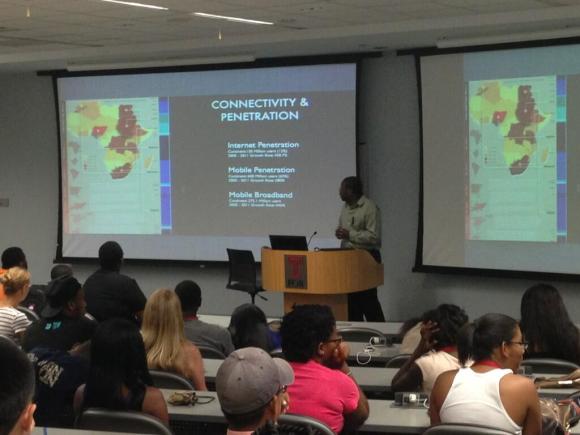
When I posted the article “20 Ideas for Social Entrepreneurs” I was pretty sure I’d soon discover a number of those ideas already being implemented that I simply wasn’t aware of prior to writing it. One of those services is MyC4 which takes the idea of peer-to-peer lending and allows people from all over the world fund African entrepreneurs. It’s a simple concept and borrows elements of both Zoopa.com and Prosper.com to make lending to complete strangers both safe and profitable.

The goal of MyC4 is to become the first company in the world to be owned by the world. In essence this would mean 6.4 billion shareholders. At present, 6,734 investors from 68 countries have invested EUR 3.8 million in more than 2,300 businesses in Uganda, Ivory Coast and Kenya. By the end of 2008, MyC4 aims to reach 25,000 investors and facilitate investments of EUR 12.5 million in more than 5,000 African businesses.
MyC4 is headquartered in Copenhagen, Denmark, and has an IT Development Center in Kampala, Uganda. MyC4 employs 22 people at its Danish office and ten people at its Ugandan office. Over the next three years, MyC4 is also aiming to sign up 12 new co-founders, named Musketeers, who – besides investing in the growth of MYC4 – will act as ambassadors and catalysts for MyC4. Besides the Musketeers, MyC4 has established advisory boards in Iceland, Sweden and Holland. More boards will be established in countries such as Norway, Uganda and Kenya as part of the company’s ongoing development. For students who wish to work or study in Africa, MyC4 has initiated a volunteer exchange service accessible via myc4.com.
As a hybrid between Grameen Bank, Wikipedia, MySpace and eBay, MyC4 offers an opportunity to invest money and knowledge in Africa’s future by providing a forum for exchange of advice and knowledge with the purpose of growing and supporting entrepreneurism in Africa. Ultimately, MyC4 is striving to become a universal platform that unites capital, people and knowledge in a common pursuit of promoting sustainable businesses in Africa. The driving force is the joint wisdom of the collective, meaning that together we are stronger, better and wiser than alone.
Like Prosper, Zopa and even Kiva, MyC4 will face some challenges. The biggest concern I hear about groups like this is the potential for scams, money laundering and fraud. Unquestionably, those things need to be addressed, but so does the fact that no matter how hard some entrepreneurs struggle to succeed in Africa, they still go unnoticed, unfavored and ultimately unfunded. MyC4 is taking on the commendable role of connecting pre-established African businesses and early start-ups with lenders from around the world who want to hear their stories and help them succeed. It’s something even domestic banks here don’t do often enough and I’m excited to see how their work progresses with the site.











